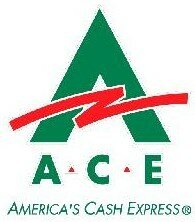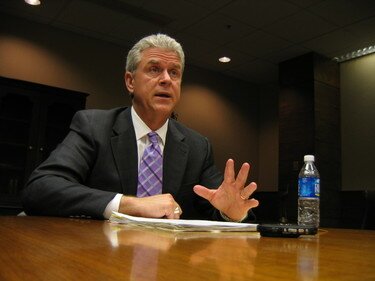The following is a paraphrased editorial from The Register-Guard in Oregon…
Dozens of fast payday loan and car title lenders have closed their doors across Oregon since a new state law capping their annual interest charges at 36 percent went into effect this month.
Boo hoo.
Well, not exactly. Few Oregonians are shedding any tears for an industry that claims it won’t stick around unless it can charge annual interest rates of 520 percent. Such rates were standard fare for providers of payday advance loans before the Legislature passed the much-needed usury cap earlier this year.
 Theatrics are obviously involved here. An estimated 60 payday loan stores statewide have closed or surrendered their licenses since June 1. That leaves about 200 payday lenders still doing business under the new regulations. Because 29 other states have imposed interest rate caps similar to Oregon’s, it seems likely that the industry will adapt and continue to exist in this state, as it has elsewhere.
Theatrics are obviously involved here. An estimated 60 payday loan stores statewide have closed or surrendered their licenses since June 1. That leaves about 200 payday lenders still doing business under the new regulations. Because 29 other states have imposed interest rate caps similar to Oregon’s, it seems likely that the industry will adapt and continue to exist in this state, as it has elsewhere.
Some short-term, no fax cash advance lenders no doubt hope that the Legislature will reverse itself in the next session and allow them to resume charging the exorbitant interest rates that they used for a quarter century to prey on desperate and naive Oregonians.
They should think again. Oregonians are fed up with legalized loan sharking. The Legislature began regulating the industry last year after cities across the state began adopting their own ordinances, and a statewide coalition of religious groups and charities began preparing to put a statewide initiative measure on the ballot.
Not that anyone should expect the industry of bad credit payday loans to slink quietly into the night. In a special session last year, the Legislature clamped down on payday lenders. The industry quickly figured out how to sidestep the new regulations by offering new types of loans under different licenses.
That prompted the 2007 Legislature to impose a blanket interest rate limit on consumer loans of all types. Other than an outright ban on payday and car title loans, it’s the only proven way to keep predatory lenders from taking advantage of the poor and vulnerable.
Payday cash loan lenders continue to make the improbable argument that the new 36 percent cap and other new restrictions make it impossible for them to stay in business. That fails to explain how the industry has managed to survive in the other states that have adopted interest-rate caps similar to Oregon’s.
Short-term lenders also claim that the Legislature has left low-income borrowers with no way to obtain short-term loans. That’s simply untrue. A variety of lenders, in particular credit unions, offer short-term loans at lower rates and with fairer terms.
What the payday lenders really want is for Oregon to turn back the clock to 1981, when the state lifted all of its interest rate caps on personal loans. The move was intended to lift restraints on the consumer credit marketplace’s ability to self-regulate through competition, supply and demand. But the practical result was a seamy proliferation of short-term lenders who charged annual interest rates in excess of 500 percent.
Now, these short-term lenders have a simple choice: They can find a way to stay in business by offering consumers loans under the reasonable limits provided by the state’s new regulations. Or they can shutter their businesses and leave this state, muttering with every step about how unfairly they’ve been treated and how much they’ll be missed by cash-strapped Oregonians.
If they choose the latter, it’s doubtful anyone will shed any tears.
 The De Soto City Council is generally receptive to business and the short-term loan industry joins adult entertainment as the only category of business the city has actively attempted to discourage. The preemptive action against instant payday loans probably was much more needed as the city is home a significant underclass population on which the industry thrives.
The De Soto City Council is generally receptive to business and the short-term loan industry joins adult entertainment as the only category of business the city has actively attempted to discourage. The preemptive action against instant payday loans probably was much more needed as the city is home a significant underclass population on which the industry thrives. Walking through a struggling neighborhood in Cleveland, the nation’s poorest big city, Edwards said that without national regulations predatory lenders who offer higher-priced
Walking through a struggling neighborhood in Cleveland, the nation’s poorest big city, Edwards said that without national regulations predatory lenders who offer higher-priced  “There’s been a lot in the news about the [
“There’s been a lot in the news about the [ The June 2007 report on utilities and
The June 2007 report on utilities and  The investigation by the Department found that Margaret Diego willfully violated sections 23024, 23036, and 23037 of the law by entering into eighty seven (87) deferred deposit transactions with at least 13 separate consumers, in some cases while existing
The investigation by the Department found that Margaret Diego willfully violated sections 23024, 23036, and 23037 of the law by entering into eighty seven (87) deferred deposit transactions with at least 13 separate consumers, in some cases while existing  There was previously no cap for loans, said Melissa Johnson, Sawbucks manager. “We’ve tried to work with our customers that used to have those higher loans.”
There was previously no cap for loans, said Melissa Johnson, Sawbucks manager. “We’ve tried to work with our customers that used to have those higher loans.” It sounds, however, as if the governor and lawmakers are ready to take another shot at lowering those
It sounds, however, as if the governor and lawmakers are ready to take another shot at lowering those  Theatrics are obviously involved here. An estimated 60 payday loan stores statewide have closed or surrendered their licenses since June 1. That leaves about 200 payday lenders still doing business under the new regulations. Because 29 other states have imposed interest rate caps similar to Oregon’s, it seems likely that the industry will adapt and continue to exist in this state, as it has elsewhere.
Theatrics are obviously involved here. An estimated 60 payday loan stores statewide have closed or surrendered their licenses since June 1. That leaves about 200 payday lenders still doing business under the new regulations. Because 29 other states have imposed interest rate caps similar to Oregon’s, it seems likely that the industry will adapt and continue to exist in this state, as it has elsewhere. The industry has been sharply criticized recently by people who said it takes advantage of poorer consumers and the high interest rates send them into a spiraling crush of debt. But
The industry has been sharply criticized recently by people who said it takes advantage of poorer consumers and the high interest rates send them into a spiraling crush of debt. But